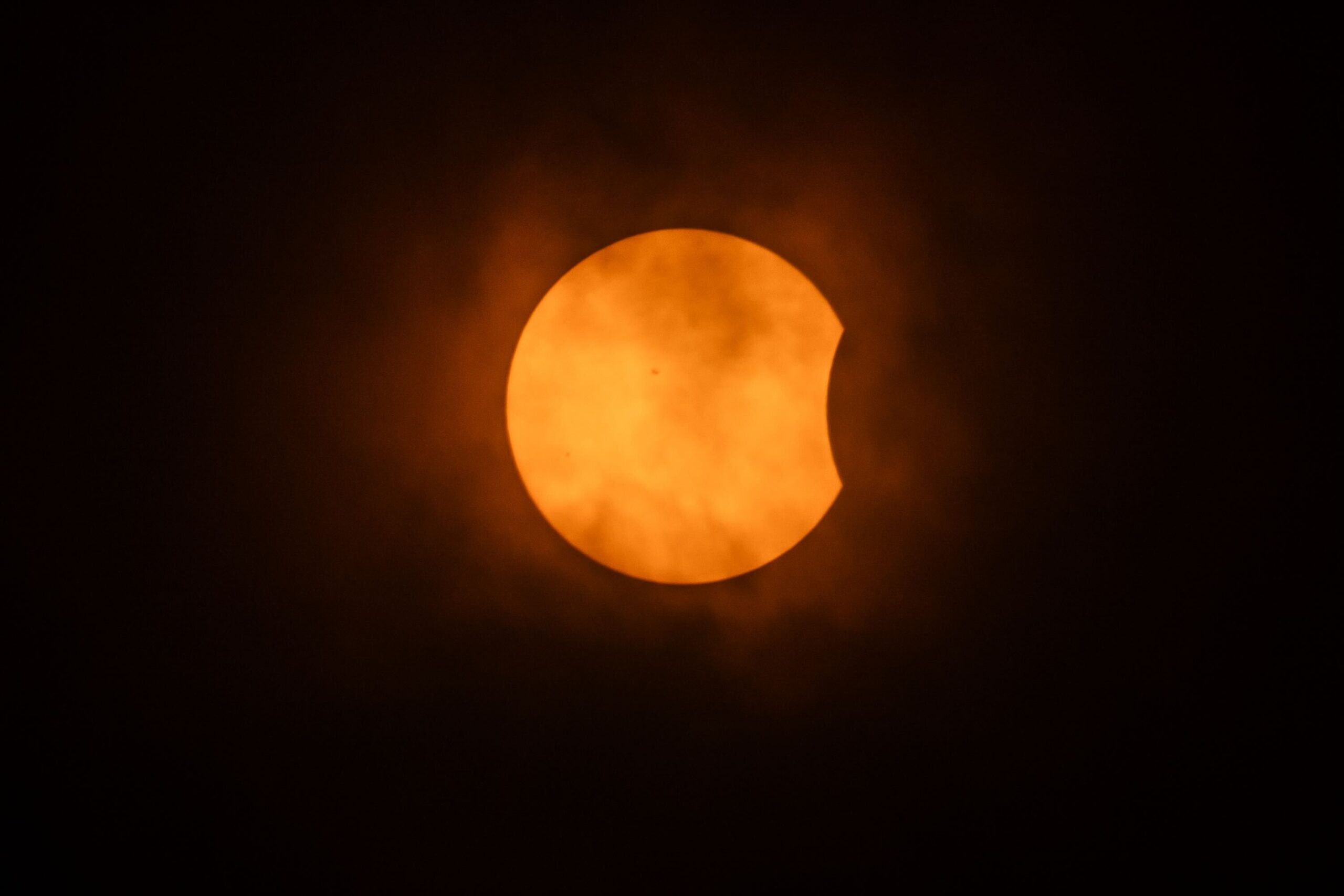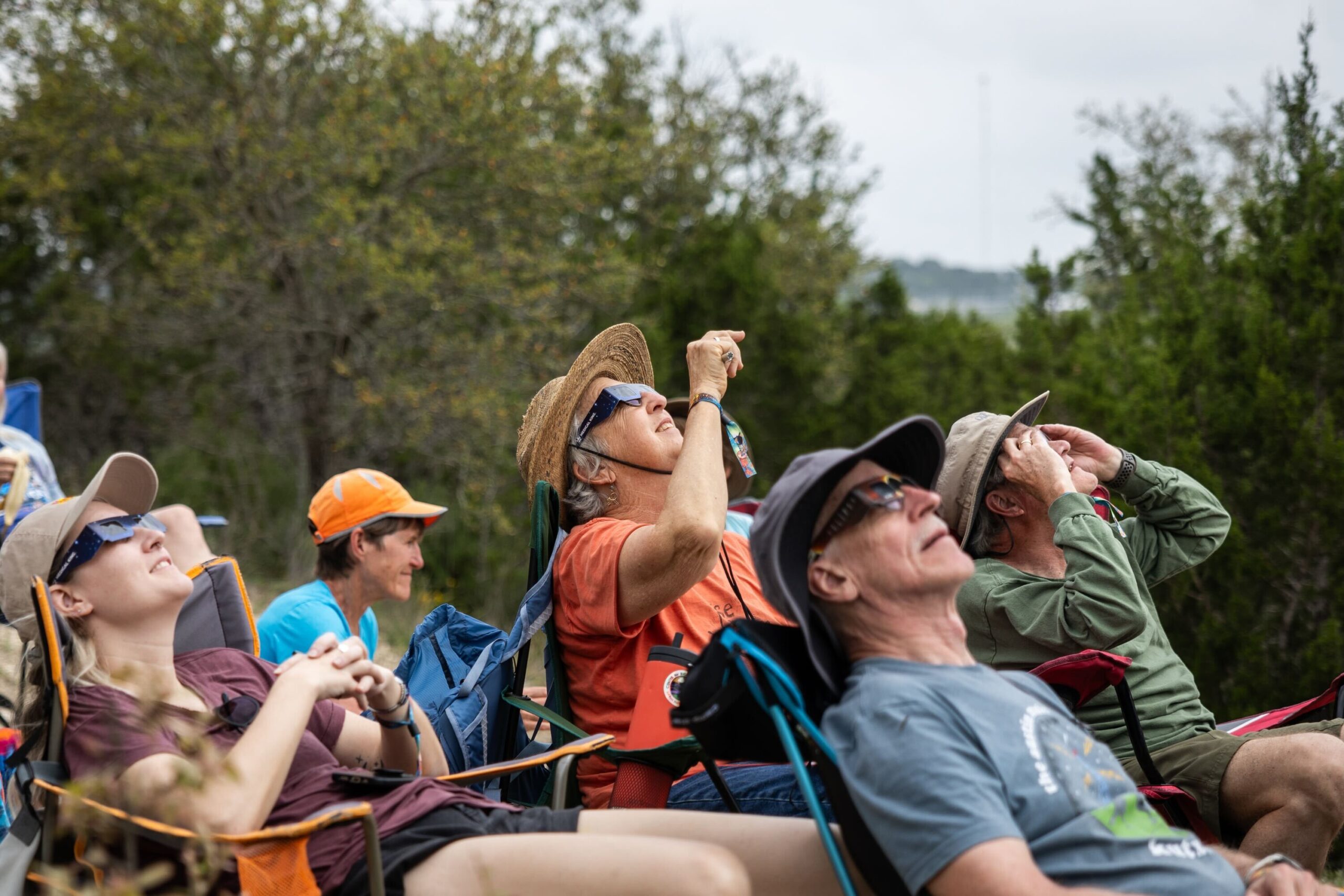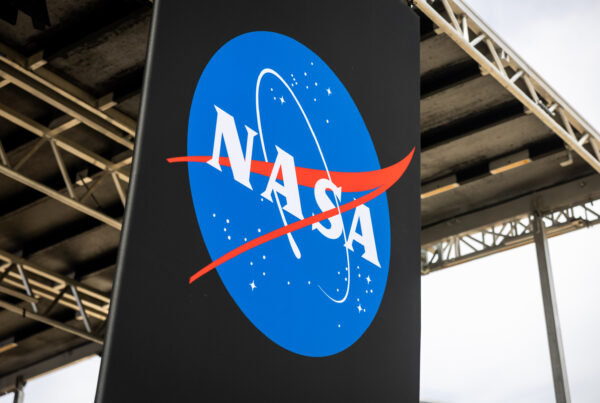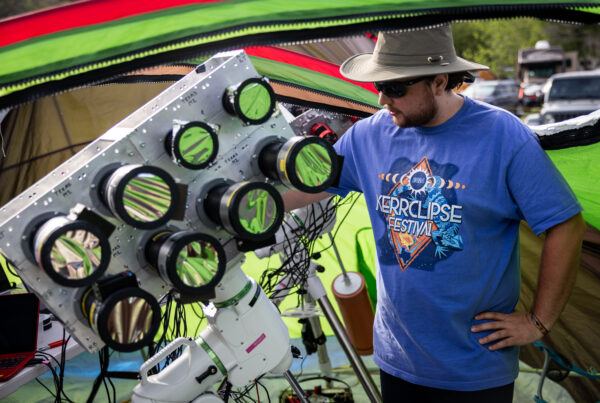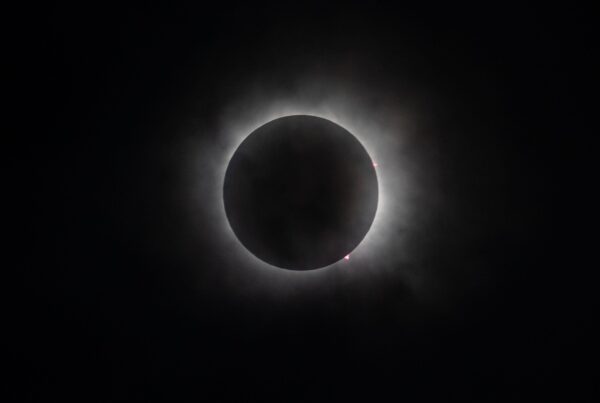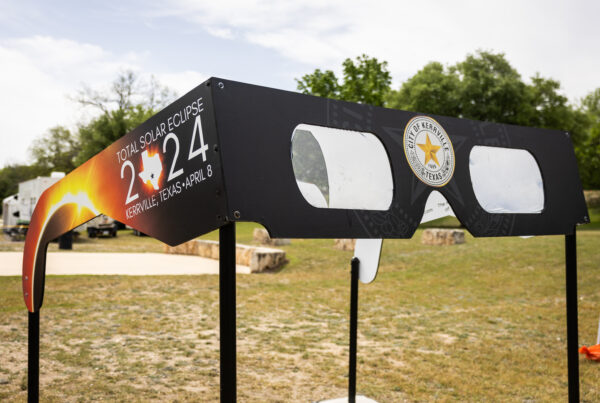It has been said that the solar eclipse can be life-changing. And this is not mere hyperbole – just ask scientists like Sarah Auriemma, a data analyst for the Space Weather Group at the Cooperative Institute for Research in Environmental Sciences.
Auriemma was in Kerrville doing research related to solar phenomenon and joined Texas Standard with more about the “observer effect.”
This transcript has been edited lightly for clarity:
Texas Standard: You’re here with the Solar Wind Sherpas as well. How many eclipses have you personally observed?
Sarah Auriemma: So this is my second total solar eclipse. I was in New Mexico for the annular eclipse back in October. So, yeah, I went to Chile in 2019. That was a wonderful experience, and it really did change the trajectory of my life.
I was an undergrad and had an amazing opportunity to be with my mentors and the Sherpas. And I’ve really grown as a scientist since then. I’ve since gone to grad school, got my master’s, and I have a career, and that’s amazing. And I still get to do these things.
That’s wonderful. Let’s talk about something that astronauts have often talked about, and I think we’ve all heard it in the news reports after they land back here on Earth: They say, when in space, they experienced something called an “overview effect” or “observer effect.” Can you explain what that is?
Yeah, I think it’s really the human aspect. And when you see a celestial phenomena that really any human in the path of totality can see, it really sets you right there. And you realize that how small you are in the universe.
And I think it really brings everyone together, whether you’re a scientist, an artist, or just an audience member at the folk festival.


